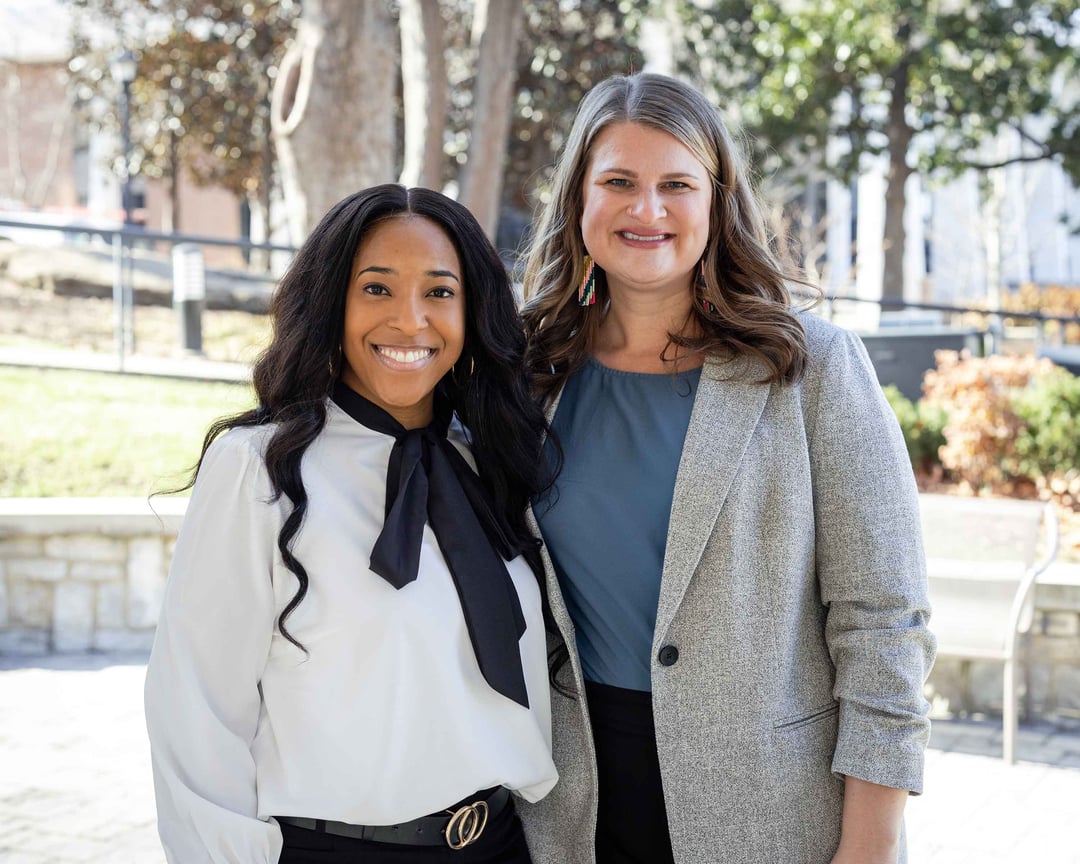Program Perspectives: Social Work

Social work program Director Dr. Allison Buzard and program Field Director Ariell Tillman sat down to share their love for social work and what it’s like for students who choose this course of study.
How would you define social work?
AB: I would say advocacy. It’s advocacy at every level. You might be advocating with individuals, with small groups, with communities, but no matter what you do, you are there to shift conditions of oppression for people society has marginalized.
AT: The words that come to mind are ministry work. I think of social work as empowering people to use the voice they didn’t realize they had. We help people by giving them the tools to utilize their own voice and make effective change in their life.
What is something important you want graduates to take away from the program?
AB: We want to graduate social workers who are ready to practice anti-racist, anti-oppressive social work that is trauma-informed. And we want our graduates to know how to operate within the ethical parameters of the profession.
The Trevecca social work program allows for advanced standing. Can you explain what that is and why it is important?
AT: Advanced standing is an opportunity for social work students to get their master’s degree in a shorter timeframe than a traditional master’s program. Their senior year, students are already taking classes that they would’ve taken in their master’s program. They’re also able to knock out part of the practicum so they can do fewer hours in their internship.
AB: If you want to be a licensed clinical social worker (LCSW), you need a master’s degree. There are also certain other positions that require it. It’s helpful and sometimes mandatory if you are interested in being in a leadership or management position. At the undergraduate level, we’re teaching generalist social work. Typically with a master’s degree, you’re picking something more specialized, and we can help you prepare for that.
All students participate in a practicum. What placement opportunities are available to them as undergraduates?
AT: We have a student who will be working with the juvenile court next semester. We have a lot of students who work with the unhoused population. We’ve also had students work with human trafficking nonprofits as well as agencies that are involved with adoption, foster care, gerontology and helping immigrants and refugees.
What sets the Trevecca social work program apart?
AB: Our students are really special and they are some of our best teachers, because they come in with rich and varied life experiences. The program is small enough that our students really get to know one another and us. This year, our seniors are referring to themselves as a family. There is also the faith aspect. We really dive into what it means to live out a Christian ethic in service of social justice.
AT: Because of the size of our program, we can have really good relationships with our students. It opens the door for us to have conversations about things they are passionate about. And many of our students are local, so they are able to do work in the place where they grew up. That can bring a lot of passion to the work they do.
Thinking back on your life and work experience, what does it mean to you to be in social work?
AT: I was created to be a social worker; social work has saved me. I want students to know that social work goes beyond a nine-to-five job. Even if I am not actively working or practicing, my values should continue to align with the ethics of the profession. When you become a social worker, you are an advocate on and off the clock, whether it’s in your church, in your community or with your family and friends.
AB: I have a passion for social justice, service and making things right. It's hard work, it's heavy and it's not for everyone. We covered something very difficult in class recently and we discussed how to hold space for the things that the majority of people don’t have the capacity to hold. It is a gift to get to sit with the people that Jesus sat with, the people on the fringes of society that no one pays attention to. There is something beautiful and sobering about that.
